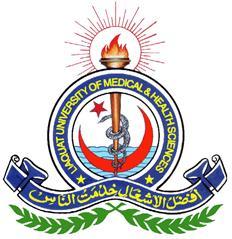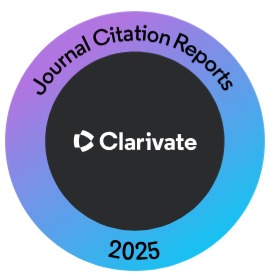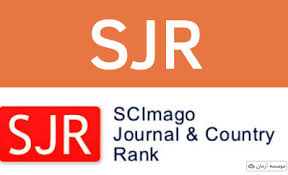Investigation of Cancer Coping Attitudes of Children Receiving Cancer Treatment between the Ages of 10-18
Keywords:
Children, Between the ages 10-18, Cancer, Treatment, CopingAbstract
OBJECTIVE: This study aimed to examine the coping attitudes of children between the ages of 10-18 who are receiving cancer treatment.
METHODOLOGY: The data for this research were collected online between September to November 2024. The study group consisted of children between the ages of 10-18 who were receiving cancer treatment. Online questionnaire method, sociodemographic questionnaire form and Pediatric Cancer Coping Scale (PCCS) were used from 85 individuals receiving cancer treatment between the ages of 10-18 who voluntarily participated in the collection of research data and were selected by convenience sampling method, one of the improbable sampling methods, with written consent from their parents. SPSS 25.0 data analysis program was used.
RESULTS: Among children between the ages of 10-18 who received cancer treatment, 65.5% were male and 34.4% were female. Examining the coping attitudes of children between the ages of 10-18 who were undergoing cancer treatment, no statistically significant difference was found with the characteristics of gender, age, education level, diagnosis, age at diagnosis, current treatment, duration of treatment, and it was observed that their coping perceptions towards cancer were similar.
CONCLUSION: As a result, it is recommended that children between the ages of 10 and 18 who are receiving cancer treatment have personal coping strategies that do not vary according to the characteristics of their cancer and that alternatives for children to cope with cancer should be developed in cooperation with families and nurses.
References
Steliarova-Foucher E, Colombet M, Ries LA, Moreno F, Dolya A, Bray F et al. International incidence of childhood cancer, 2001–10: A population-based registry study. Lancet Oncology. 2017; 18(6): 719-731. doi: 10.1016/S1470-2045(17)30186-9.
Ministry of Health. Türkiye Cancer Statistics 2015. 2018. Available from: https://hsgm.saglik.gov.tr/depo/birimler/kanserdb/istatistik/Turkiye_Kanser_Istatistikleri_2015.pdf.
Organization WH. International Childhood Cancer Day: Questions & Answers. 2017. Available from: https://www.who.int/cancer/media/news/Childhood_cancer_day/en/.
Arceci RJ. Pediatric oncology: Psychosocial care in context. In: Abrams AN, Muriel AC, Wiener L. (Editors). Pediatric psychosocial oncology: Textbook for multidisciplinary care. Switzerland: Springer. 2016: 1-6.
Barakat LP, Alderfer MA, Kazak AE. Post-traumatic growth in adolescent survivors of cancer and their mothers and fathers. J Pediatr Psychology. 2006; 31(4): 413-419. doi: 10.1093/jpepsy/jsj058.
Pan HT, Wu LM, Wen SH. Quality of life and its predictors among children and adolescents with cancer. Cancer Nursing. 2017; 40: 343-51. doi: 10.1097/NCC.0000000000000433.
Damascena LC, de Lucena NN, Ribeiro IL, Pereira TL, Lima-Filho LM, Valença AM. Severe oral mucositis in pediatric cancer patients: survival analysis and predictive factors. Int J Environ Res Public Health. 2020; 17(4): 1235. doi: 10.3390/ijerph17041235.
Park M, Park HJ, Lee JM, Ju HY, Park BK, Yu ES et al. School performance of childhood cancer survivors in Korea: A multi institutional study on behalf of the Korean Society of Pediatric Hematology and Oncology. Psychol Oncology. 2018; 27(9): 2257-2264. doi: 10.1002/pon.4819.
Liptak CC, Chow C, Zhou ES, Recklitis CJ. Psychosocial care for pediatric cancer survivors. In: Abrams AN, Muriel AC, Wiener L. (Editors). Pediatric psychosocial oncology: Textbook for multidisciplinary care. Switzerland: Springer. 2016; 265-289.
Ahomäki R, Gunn ME, Madanat-Harjuoja LM, Matomäki J, Malila N, Lähteenmäki PM. Late psychiatric morbidity in survivors of cancer at a young age: A nationwide registry?based study. Int J Cancer. 2015; 137(1): S183-192. doi: 10.1002/ijc.29371.
Tsai MH, Hsu JF, Chou WJ, Yang CP, Jaing TH, Hung IJ et al. Psychosocial and emotional adjustment for children with pediatric cancer and their primary caregivers and the impact on their health-related quality of life during the first 6 months. Qual Life Res. 2013; 22(3): 625-634.
Van Schoors M, Caes L, Knoble NB, Goubert L, Verhofstadt LL, Alderfer MA. Systematic review: Associations between family functioning and child adjustment after pediatric cancer diagnosis: A meta-analysis. J Pediatr Psychology. 2017; 42(1): 6-18. doi: 10.1093/jpepsy/jsw070.
Wu LM, Chin CC, Chen CH, Lai FC, Tseng YY. Development and validation of the paediatric cancer coping scale. J Adv Nursing. 2011; 67: 1142-51. doi: 10.1111/j.1365-2648.2010.05567.x.
Kisecik Sengul Z, Kilicarslan Toruner E, Ozbek NY. Reliability and validity of the Turkish version of the Paediatric Cancer Coping Scale (PCCS). Int J Nurs Pract. 2022; 28(4): 13037. doi: 10.1111/ijn.13037.
Yurt E. Practical information for multivariate analysis in social sciences: SPSS and AMOS applications. Ankara: Nobel. 2023.
Compas BE, Desjardins L, Vannatta K, Young-Saleme T, Rodriguez EM, Dunn M et al. Children and adolescents coping with cancer: self-and parent reports of coping and anxiety/depression. Health Psychology. 2014; 33(8): 853. doi: 10.1037/hea0000083.
Hagedoorn M, Kreicbergs U, Appel C. Coping with cancer: The perspective of patients' relatives. Acta Oncologica. 2011; 50(2): 205-211. doi: 10.3109/0284186X.2010.536165.
Norberg AL, Lindblad F, Boman KK. Coping strategies in parents of children with cancer. Soc Sci Med. 2005; 60(5): 965-975. doi: 10.1016/j.socscimed.2004.06.030.
Li HW, Chung OKJ, Ho KYE, Chiu SY, Lopez V. Coping strategies used by children hospitalized with cancer: an exploratory study. Psychol Oncology. 2011; 20(9): 969-976. doi: 10.1002/pon.1805.
Sposito AMP, Silva-Rodrigues FM, Sparapani VDC, Pfeifer LI, de Lima RAG, Nascimento LC. Coping strategies used by hospitalized children with cancer undergoing chemotherapy. J Nurs Scholarship. 2015; 47(2): 143-151. doi: 10.1111/jnu.12126.
Sharma R, Shyam R, Grover S. Coping strategies used by parents of children diagnosed with cancer. Indian J Soc Psychiatry. 2018; 34(3): 249-254. doi: 10.4103/ijsp.ijsp_57_18.
Kupst MJ, Patenaude AF. Coping with pediatric cancer. 2015. In L. S. Wiener, M. Pao, A. E. Kazak, M. J. Kupst, A. F. Patenaude, & R. Arceci (Eds.), Pediatric psycho-oncology: A quick reference on the psychosocial dimensions of cancer symptom management (2nd ed., pp. 241–251). Oxford University Press.
Gage-Bouchard EA, Devine KA, Heckler CE. The relationship between sociodemographic characteristics, family environment, and caregiver coping in families of children with cancer. J Clin Psychol Med Settings. 2013; 20: 478-487.
Kim DH, Yoo IY. Factors associated with resilience of school-age children with cancer. J Paediatr Child Health. 2010; 46(7-8): 431-436. doi: 10.1111/j.1440-1754.2010.01749.x.
Ismael N, Malkawi S, Al Awady S, Ismael T. Exploring coping strategies among caregivers of children who have survived paediatric cancer in Jordan. BMJ Paediatr Open. 2024; 8(1). doi: 10.1136/bmjpo-2023-00245.
Boman KK, Bodegård G. Life after cancer in childhood: social adjustment and educational and vocational status of young-adult survivors. J Pediatr Hematology/Oncology. 2004; 26(6): 354-362.
Hildenbrand AK, Clawson KJ, Alderfer MA, Marsac ML. Coping with pediatric cancer: Strategies employed by children and their parents to manage cancer-related stressors during treatment. J Pediatr Oncol Nursing. 2011; 28(6): 344-354. doi: 10.1177/1043454211430823.
Nóia TDC, Sant'Ana RSE, Santos ADSD, Oliveira SDC, Bastos Veras SMC, Lopes-Júnior LC. Coping with the diagnosis and hospitalization of a child with childhood cancer. Invest y Educación en Enfermería. 2015; 33(3): 465-472.
Germann JN, Leonard D, Stuenzi TJ, Pop RB, Stewart SM, Leavey PJ. Hoping is coping: A guiding theoretical framework for promoting coping and adjustment following pediatric cancer diagnosis. J Pediatr Psychology. 2015; 40(9): 846-855. doi: 10.1093/jpepsy/jsv027.
Peek G, Melnyk BM. Coping interventions for parents of children newly diagnosed with cancer: an evidence review with implications for clinical practice and future research. Pediatr Nursing. 2010; 36(6).
Derman YE, Deatrick JA. Promotion of well-being during treatment for childhood cancer: a literature review of art interventions as a coping strategy. Cancer Nursing. 2016; 39(6): 1-16. doi: 10.1097/NCC.0000000000000318.
Han J, Liu JE, Xiao Q. Coping strategies of children treated for leukemia in China. Eur J Oncol Nursing. 2017; 30: 43-47. doi: 10.1016/j.ejon.2017.08.002.
Matos JR, Coutinho APM, Gonçalves ALM, Motta AB. Quality of life and coping in children with cancer. Estudos de Psicologia (Campinas). 2023; 40: 200210. doi: 10.1590/1982-0275202340e200210.
Koopman HM, Koetsier JA, Taminiau AH, Hijnen KE, Bresters D, Egeler RM. Health?related quality of life and coping strategies of children after treatment of a malignant bone tumor: A 5 year follow up study. Pediatric Blood & Cancer. 2005; 45(5): 694-699. doi: 10.1002/pbc.20408.
Hermont AP, Scarpelli AC, Paiva SM, Auad SM, Pordeus IA. Anxiety and worry when coping with cancer treatment: agreement between patient and proxy responses. Qual Life Res. 2015; 24: 1389-1396.
Downloads
Published
How to Cite
Issue
Section
License
Copyright (c) 2025 Journal of Liaquat University of Medical & Health Sciences

This work is licensed under a Creative Commons Attribution-NonCommercial-ShareAlike 4.0 International License.
Submission of a manuscript to the journal implies that all authors have read and agreed to the content of the undertaking form or the Terms and Conditions.
When an article is accepted for publication, the author(s) retain the copyright and are required to grant the publisher the right of first publication and other non-exclusive publishing rights to JLUMHS.
Articles published in the Journal of Liaquat University of Medical & health sciences are open access articles under a Creative Commons Attribution-Noncommercial - Share Alike 4.0 License. This license permits use, distribution and reproduction in any medium; provided the original work is properly cited and initial publication in this journal. This is in accordance with the BOAI definition of open access. In addition to that users are allowed to remix, tweak and build upon the work non-commercially as long as appropriate credit is given and the new creations are licensed under the identical terms. Or, in certain cases it can be stated that all articles and content there in are published under creative commons license unless stated otherwise.























